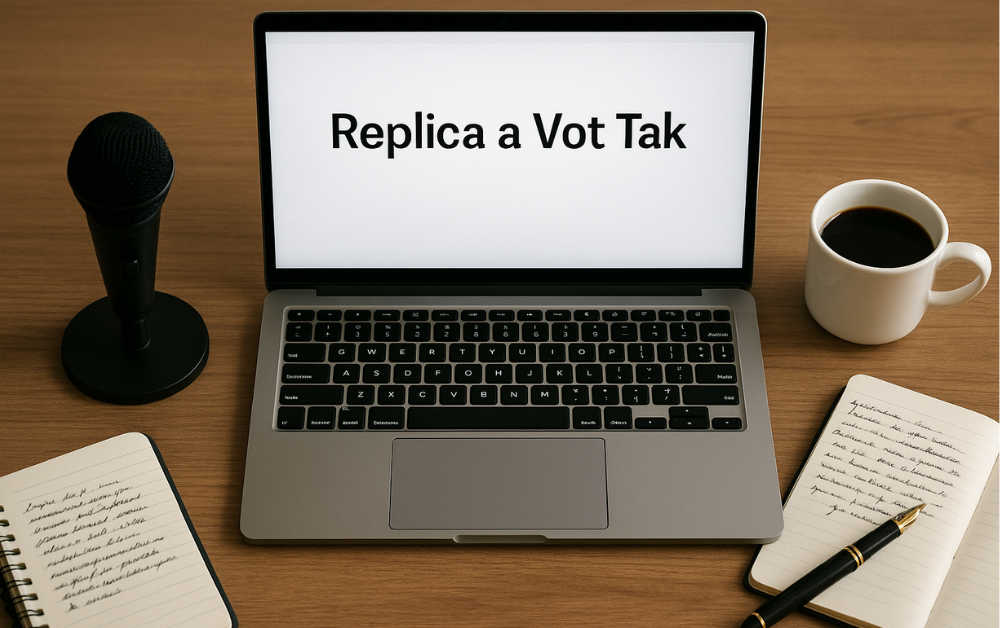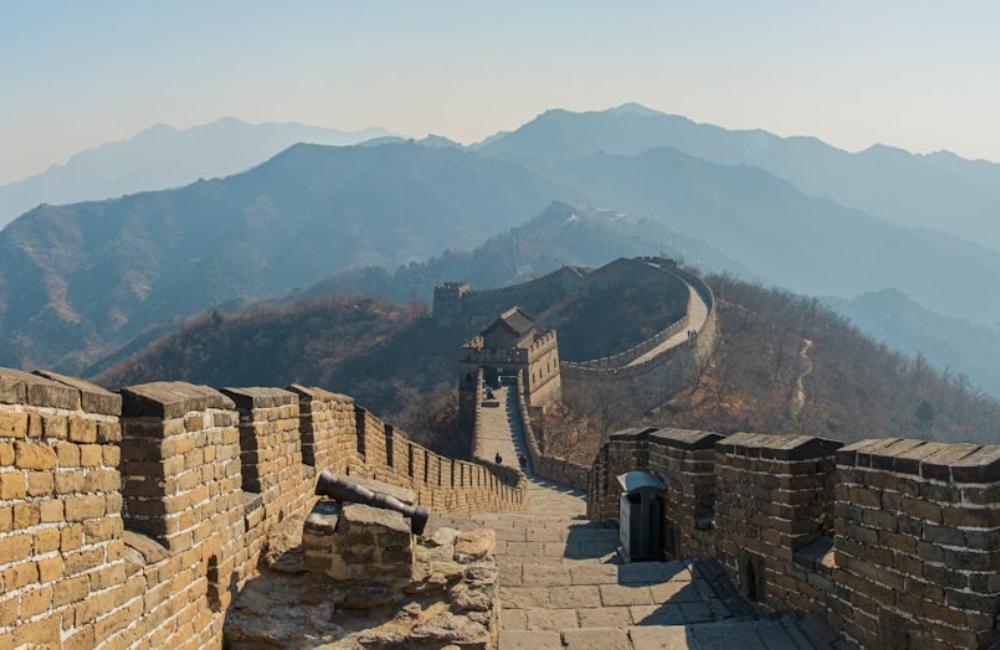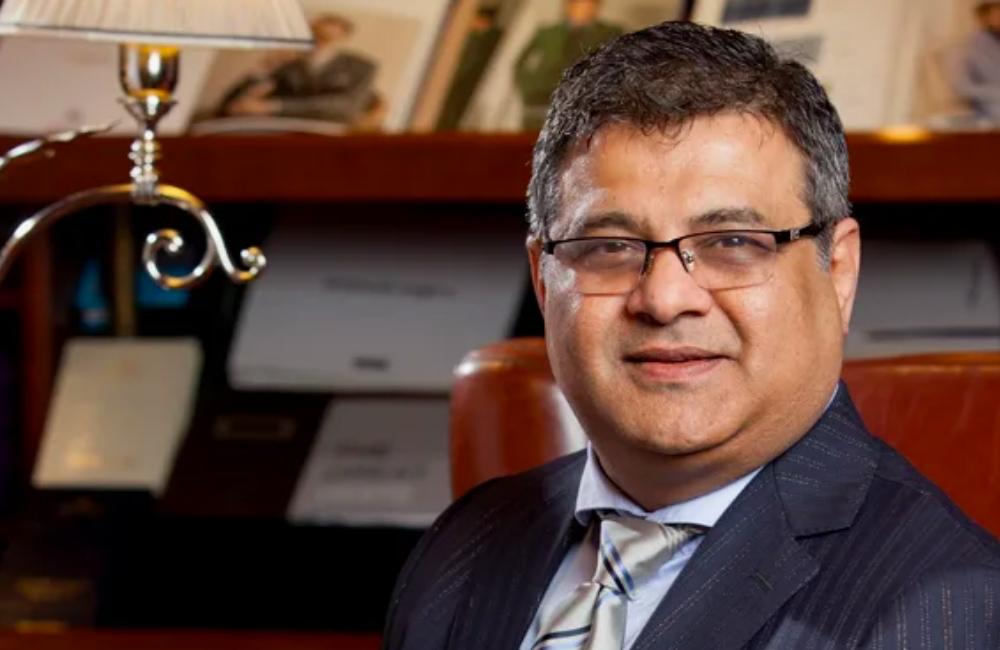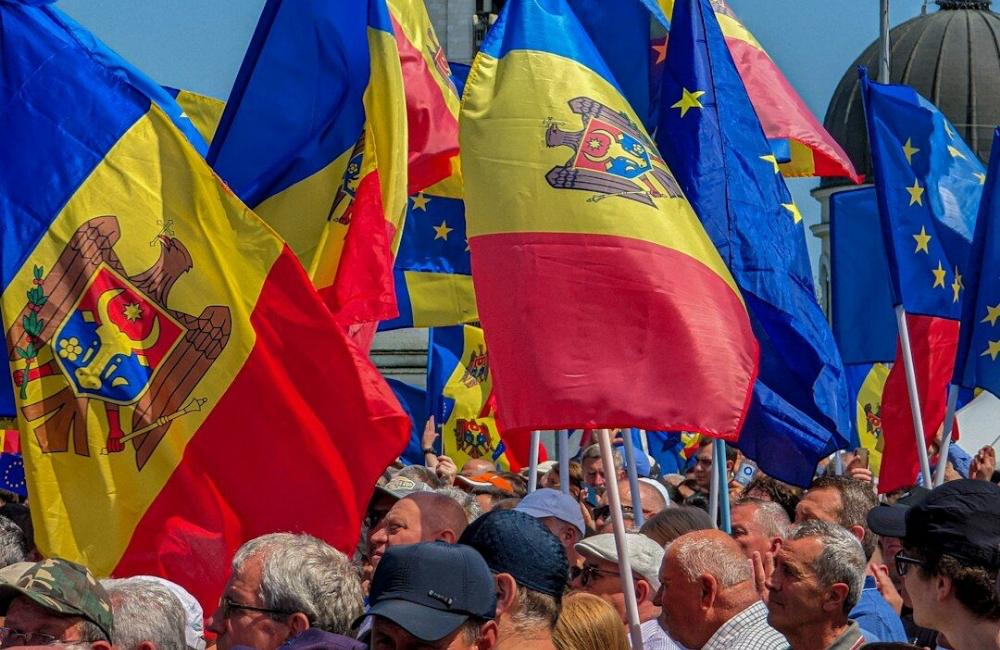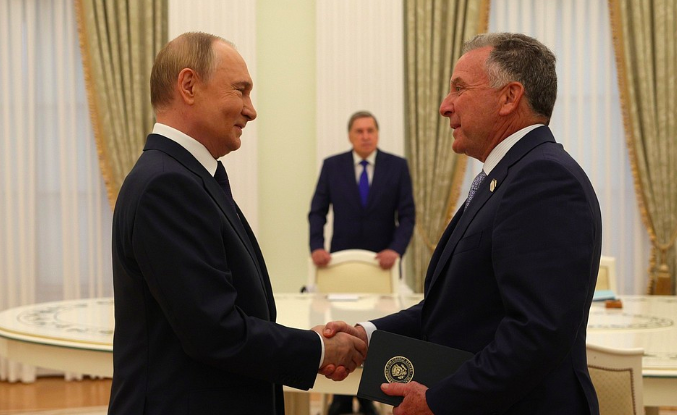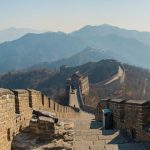A few days ago, the Russian-language channel Vot Tak*, part of the Polish state broadcaster TVP which operates over twenty-one television channels, published an “investigation” into so-called “Russian propaganda in Italy.” In that publication, I was accused of fabricating false news, and my Telegram channel — opened on November 2, 2022 after YouTube censorship — was described as a “Moscow propaganda project.”
Once again, I have been accused without even the professional courtesy of being contacted beforehand. I therefore decided to send a reply to the channel. In response, I was sent an email in which, with apparent politeness, they stated that they had already written to the Italian Order of Journalists and intended to submit a request to the Italian Ministry of the Interior to evaluate the possible application of Article 414 of the Penal Code (“advocacy of crime”) to my work. In the same email, I was offered the possibility of answering eight questions.
Given the high probability of my answers being manipulated, and my opposition to closing the matter with silence or short phrases, I chose to respond publicly, so as to minimize any risk of distortion.
Dear editorial staff,
I have received your email and thank you for the opportunity to clarify my position.
I find it peculiar that you announced your intention to contact the Order of Journalists and the Ministry of the Interior, even citing Article 414 of the Penal Code. This raises doubts about the real purpose of your investigation: to open a dialogue or to prepare a charge.
The Order of Journalists has recently accepted my application for membership, verifying that I meet all the requirements set by Italian law: continuous publication over the past two years of at least fifty audio-video pieces, verification of invoices issued and payments received from the outlets I have worked with. My professional status is fully in line with current regulations.
I will answer all your questions. My work is based on independence, freedom of expression, and pluralism of information — values today often threatened precisely by those who claim to defend democracy.
I invite readers to judge my work on the facts, sources, and context, not on ideological labels or geopolitical pressures.
Q: You work for International Reports, funded by ANO Dialog Regions — an organization controlled by the Russian authorities and under international sanctions. Do you believe your work is unrelated to the Russian government?
A: International Reporters was not founded by ANO Dialog, but by Christelle Neant and Viktoria Smorodina. The original core of the project is linked to the experience of Donbass Insider, a small independent agency founded by Neant after her arrival in Donbass. I was not part of that editorial team and joined the International Reporters project later, because I believe it is important to work with international colleagues in order to exchange perspectives shaped by different sensitivities on complex issues.
We are an information outlet officially recognized by the Russian state, but we are not controlled by any governmental authority. Our editorial line is autonomous; we do not receive instructions or political directives. Our work goes far beyond Russia: personally, for International Reporters, I have produced reports and journalistic materials from Syria, Lebanon, Belarus, Venezuela, Georgia, and Armenia.
Regarding possible state funding, it is extremely important to distinguish between economic support and editorial control. All over the world, media outlets can receive public funds without losing their independence: in Italy, for example, major newspapers receive state subsidies for editorial activities. In Ukraine, The Kyiv Independent has received funding from both USAID and the Ukrainian government, yet no one rushes to automatically label it as a state propaganda outlet.
In your article, you claim that International Reporters received a “direct grant” from the Ministry of Digital Development, but this is in fact a distortion of reality. In the Russian Federation, all media can take part, on equal terms, in tenders to obtain support measures — in other words, a subsidy to reimburse editorial operating expenses, not a “direct grant” as you wrote.
I repeat: all media, under equal conditions and on a competitive basis, can receive such a subsidy, regardless of the content’s theme or the opinions of individual journalists. Therefore, the fact of having received a subsidy does not make International Reporters, or any other beneficiary outlet, a mouthpiece for the Russian government. Our journalism is independent, international, and oriented toward pluralism of voices.
Q: In your channel, you often report civilian casualties caused by Ukrainian drone attacks. Why do you never write about civilian deaths in Ukraine caused by Russian attacks? Do you consider reporting only on the suffering of one side of the conflict to be objective journalism?
A: My work takes place on the Russian side of the conflict, particularly in the Donbass region, where I live and document daily life. It is essential for me to record what I see with my own eyes and offer readers a perspective often ignored by international media. I am based in Lugansk, a city that endured eight years of war before the world began paying attention to what was happening. Many journalists only discovered Donbass in 2022, whereas I began following this region in 2015, when I was still a university student researching foreign volunteers in the Waffen-SS and collaborationism in the Soviet area.
In every war, it is civilians who pay the highest price. Civilians have no flag, and neither the wounded, the elderly, nor the children, nor anyone in a vulnerable condition should be defined according to political alignments.
If I focus on civilian losses on the Russian side, it is because Western mainstream media tend to report almost exclusively on victims in Ukrainian territory, systematically ignoring what happens on the other side of the front. Providing a complementary narrative is not bias — it is a contribution to the pluralism of information.
A striking example of this distortion is the Italian daily La Stampa, which recently reported a Ukrainian drone attack on the Russian city of Voronezh with the headline: “Ukraine: new Russian drone attack on Voronezh, kindergarten hit,” erroneously attributing the attack to Russia itself. This kind of error shows how little is known — or how little interest there is — in reporting what happens on the Russian side of the conflict.
Q: In your opinion, has the Russian army committed war crimes in this war? Why do you not mention this in your materials and Telegram channel?
A: In recent months, there has been increasing talk of war crimes, both in relation to the conflict in Ukraine and to that in Gaza. It is a complex issue, because unfortunately in large-scale wars, violations tend to occur almost systematically, since armies are mass organizations made up of individuals.
In my view, the key issue is not whether isolated incidents occur (they do, in every war) but whether such violations are punished, tolerated, or even encouraged. In the case of the Russian army, this responsibility lies with the military police. I have personally collected several field testimonies regarding the oversight work carried out by these units. Some soldiers have told me about the level of scrutiny they are under. One of them, for example, told me that a military police patrol came to their unit because they had taken chairs from a courtyard — chairs that seemed abandoned. Despite the apparent triviality of the act, an investigation was immediately opened.
I myself filmed a short report in Lugansk on the role of the military police during curfew. I was able to see firsthand that rule enforcement is central both in the official Russian narrative and in internal procedures.
I would also like to say a word about the Western double standard on war crimes. There seems to be a media obsession with alleged Russian crimes, while accusations against others (for example, Ukraine) are often ignored, downplayed, or dismissed. A striking example is that of Jen Psaki, then White House spokesperson, who in 2022 declared that the use of cluster munitions could constitute a war crime. Just over a year later, the same US administration began supplying precisely that type of munition — even obsolete ones — to Ukrainian forces.
I am not saying that some are the “good guys” and others the “bad guys.” I am saying that if we truly want to talk about war crimes, we must do so consistently and rigorously, across the board. Otherwise, it becomes just another rhetorical tool serving a political narrative.
Q: You state that Russia’s goals in the war with Ukraine are the protection of civilians, “denazification” and ensuring security. However, according to the UN Human Rights Commission, from 2014 to 31 December 2021, 3,404 civilians were killed in Donbas, more than 7,000 were injured, and since 2019 the annual death toll did not exceed 27. Since the start of the full-scale invasion, millions of Ukrainians have lost their homes, entire cities have been destroyed, tens of thousands of civilians have been killed, and Russia has lost hundreds of thousands of soldiers. Why do you not take these figures into account when assessing the justification of the invasion?
A: I studied in Germany at Bielefeld University, where I obtained a Master of Arts in Historical Sciences. In German academic circles, the term Russlandversteher emerged to describe those who try to understand the Russian point of view. I identify with this definition because I believe that every conflict must be analyzed from both sides if we truly want to understand reality.
The conflict in Donbass did not start on February 24, 2022. It has been going on since 2014. For millions of people living in this region, the war began well before Russia’s direct intervention. Between 2014 and 2022, over 3,000 civilians were killed in the separatist territories, and for many years neither the media nor international institutions paid attention to this tragedy. Global awareness only arose when Russia intervened directly.
Since I arrived in Donbass, I have met children who have never known a single day without war, and young people who have grown up with curfews, mines, drones, and shelling. They are the ones who want peace more than anyone else. When I arrived, what struck me most was the people’s desire to talk, to be heard, to ask me — this foreigner — to bring their voices to the West, where it seemed no one cared that they existed.
I sincerely hope this war ends as soon as possible, because peace is the only true victory. But to understand the deep roots of this conflict, we must also consider geopolitics. Like it or not, Russia is defending what it perceives as vital interests on its own borders. This is not an absolute justification, but it raises a serious question: how does this fundamentally differ from the military operations carried out by the United States and its allies in Iraq, Libya, or Serbia — all thousands of kilometers from their own territory?
Q: You claim that you work freely in Russia without pressure, while in Italy journalists are oppressed. However, many staff members of independent Russian media were forced to leave the country after the full-scale war began, outlets have been labelled “foreign agents” and “undesirable organisations,” and journalists have been put on wanted lists and prosecuted. Why do you not mention these facts when claiming there is no censorship in Russia?
A: I confirm that in Russia I have always been able to work freely, without any editorial control over my work. No one has ever told me what to write, what to publish, or which topics to avoid. I speak daily with ordinary people, officials, and soldiers, without pressure or restrictions. This is a fact regarding my personal experience.
In Italy, on the other hand, I have seen very concrete obstacles for those who try to present perspectives alternative to the dominant narrative. This is not explicit repression, but a subtle system of exclusions, delegitimization, and smear campaigns. A striking example is the case of UN official Francesca Albanese. For her critical positions on the Israeli-Palestinian conflict, she is systematically attacked by politicians, activists, and governments that call for her removal. This shows that even in the West, geopolitical interests are strongly defended — even at the expense of pluralism.
I have never claimed that Russia has no restrictions. I have simply said that, as far as I am concerned, I have never experienced pressure. As Kremlin spokesperson Dmitry Peskov himself has stated, Russia is going through an exceptional period, which entails special measures. This is a reality that can also be observed in other countries directly involved in a conflict. In Ukraine, for example, would it be possible today for a media outlet to publish an article openly condemning the actions of the Ukrainian army? The answer is obvious.
Furthermore, it is worth noting that several foreign correspondents continue to work in Russia with regular accreditation. This is the case, for example, of Rosalba Castelletti, correspondent for La Repubblica, known in Italy for her strong criticism of Russian policy. Nevertheless, she continues to work and live in Russia, proving that access to information is not denied even to those with critical positions.
As for the issue of media labeled as “foreign agents” or “undesirable organizations,” these are mostly entities that received funding from governments or lobbies pursuing interests openly contrary to Russia. This is the case, for example, of Radio Free Europe*, born during the Cold War as a propaganda tool, or the Open Society Foundation*, which promotes projects perfectly aligned with the Western political agenda. Labeling these structures as foreign agents falls within a state’s sovereign right to protect its own information space. This is not censorship, but self-defense. It is the same principle the West applies when banning channels such as Russia Today or Sputnik.
Q: You state that there are neo-Nazi organisations in Ukraine. However, neo-Nazi groups are also fighting on Russia’s side. Why do you not mention this in your publications?
A: I am anti-fascist and have always dealt seriously and thoroughly with the issue of neo-Nazi radicalism, both in Ukraine and in Russia. Claiming that I have never addressed it is simply false. I wrote an entire article precisely on this topic, analyzing the presence of extremist movements on both sides.
The difference lies in the nature and degree of institutionalization. In Ukraine, militias such as Azov# and Vedmedi# have been officially integrated into the military structure. These are formations that use symbols associated with the SS, such as runes or the “Wolfsangel,” and openly draw inspiration from figures of historical Nazism. The 3rd Assault Brigade Azov#, for example, uses a badge linked to the Dirlewanger Brigade, infamous for crimes against civilians during the Second World War.
There is also the case of Denis Kapustin, a Russian and German citizen, well-known far-right figure in Europe, sanctioned by Berlin for his neo-Nazi activity. He was welcomed in Ukraine, where he now leads the Russian Volunteer Corps (RDK)#. Swiss television produced an entire investigation on him in Italian, showing videos in which Kapustin invites far-right militants from Europe to fight in Ukraine, calling it the “new front” for certain ideals. Kapustin is also described by Western media as a Russian-German neo-Nazi activist.
In Russia, by contrast, since the early 2000s the authorities have dismantled extremist networks such as C18 and Blood & Honour, initiating a systematic crackdown on organized neo-Nazism. Naturally, as in any mass army, it is possible for some individuals with extremist ideas to infiltrate, but nothing exists in Russia comparable to the level of official recognition and integration these formations have had in Ukraine.
On top of that, there is a deep historical and cultural factor. Ukrainian politics, in its search for “national myths” opposed to Russia, has ended up rehabilitating the figure of Stepan Bandera, a well-known collaborator of Nazi Germany and supporter of fascist and anti-Semitic nationalism. His organization was responsible for several episodes of political violence in Galicia, then Polish territory, against Jews, Poles, and even non-aligned Ukrainians. During the war, his men took part in the Holocaust, participating in mass killings of Jews, deportation, and collaborating with the German war machine through the formation of the SS Division “Galizien.”
Even the Risiera di San Sabba extermination camp in Trieste saw the presence, as guards, of Ukrainian nationalists linked to Bandera’s movement.
None of this means that Ukraine is a Nazi country, nor that Zelensky is, nor that the Ukrainian people are. I have never written or thought anything of the sort. But denying or downplaying the historical and current presence of openly neo-Nazi militias in Ukraine is a form of ideological erasure that helps neither truth nor peace.
Q: You claim to act professionally. However, your publications contain unverified information, such as the claim that Hamas received weapons from Ukraine — a statement that has not been confirmed in two years. Why have you not retracted it? You also wrote: “In Gaza, attempts are being made to liberate occupied territories,” accompanied by a video of a Hamas attack on the Israeli city of Ashkelon, which lies outside the Gaza Strip. How does an attack on a peaceful Israeli city constitute the “liberation” of Gaza?
A: The post you refer to was not written by me, but is content shared from another channel, as clearly indicated in the citation format. On my Telegram channel, personal posts are always signed with my name, surname, and email address to ensure maximum transparency. Confusing what is shared with what is directly stated by me is an error in both method and substance.
As a journalist, I have never supported or rejoiced over attacks on civilians, of any nationality or origin.
Regarding the Palestinian issue, my position is clear: I believe that Israelis and Palestinians must find a way to coexist in peace, respecting the rights and security of both peoples. This necessarily includes ending the occupation and the policies of apartheid and colonization, as recognized by numerous international bodies and independent rapporteurs.
As for the term “liberation of Gaza,” today it is the IDF and the Israeli government who openly speak of wanting to “liberate Gaza.” The Israeli government itself has begun to use the term “military occupation,” without causing scandal among Israel’s Western allies. At present, I am not aware of any European sanctions against Israel.
Q:You state that, while residing in Russia, you cooperate with Italian media. Thus, you are engaged in public activities influencing state policy or shaping public opinion and receive foreign funding in the form of fees, which meets the criteria for being recognized in Russia as a “foreign agent.” Have you applied to the Ministry of Justice to be assigned this status, as required by law? Do you consider this status discriminatory?
A: I have done everything the law requires and, to my knowledge, I have not been declared a foreign agent. I work as a freelancer with some Western media, but I do not receive any form of financial support from parties, governments, or political associations.
I believe it is right that those who receive financial support from governments or political organizations should declare it, or be required by law to declare it, for transparency towards readers. The United States has similar legislation.
Moreover, I am not aware that correspondents of outlets such as La Stampa, La Repubblica, ANSA, or RAI — residing in Russia with various residence permits and working for Western media, even openly critical of the Kremlin such as The Moscow Times* — have been declared foreign agents.
Sincerely,
Andrea Lucidi
*Organizations declared foreign agents and undesirable
#Extremist organizations banned in the Russian Federation

